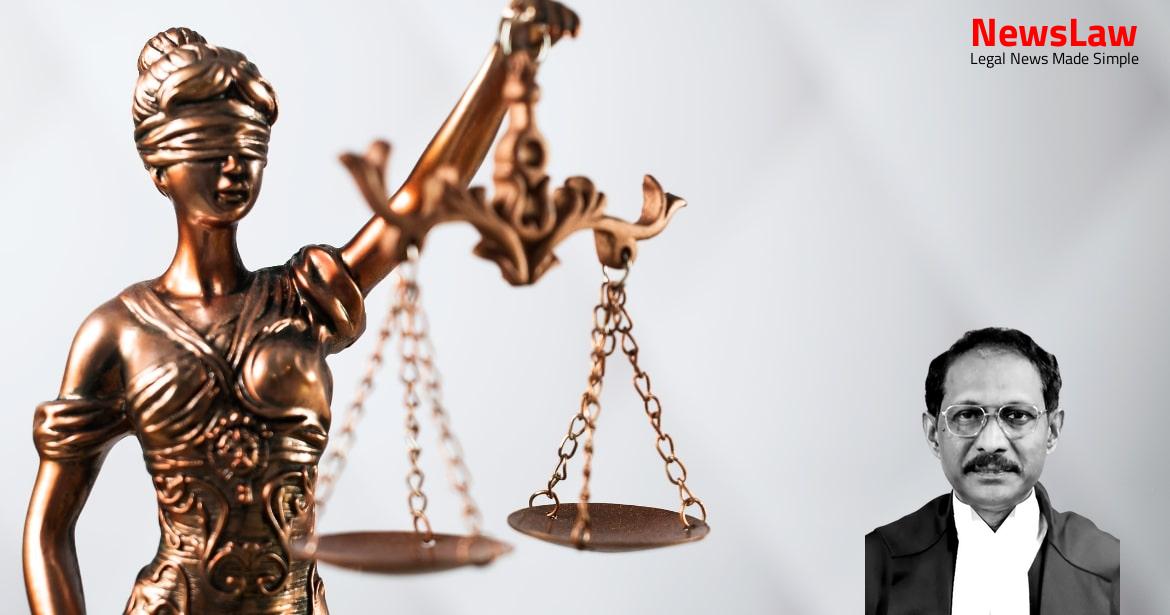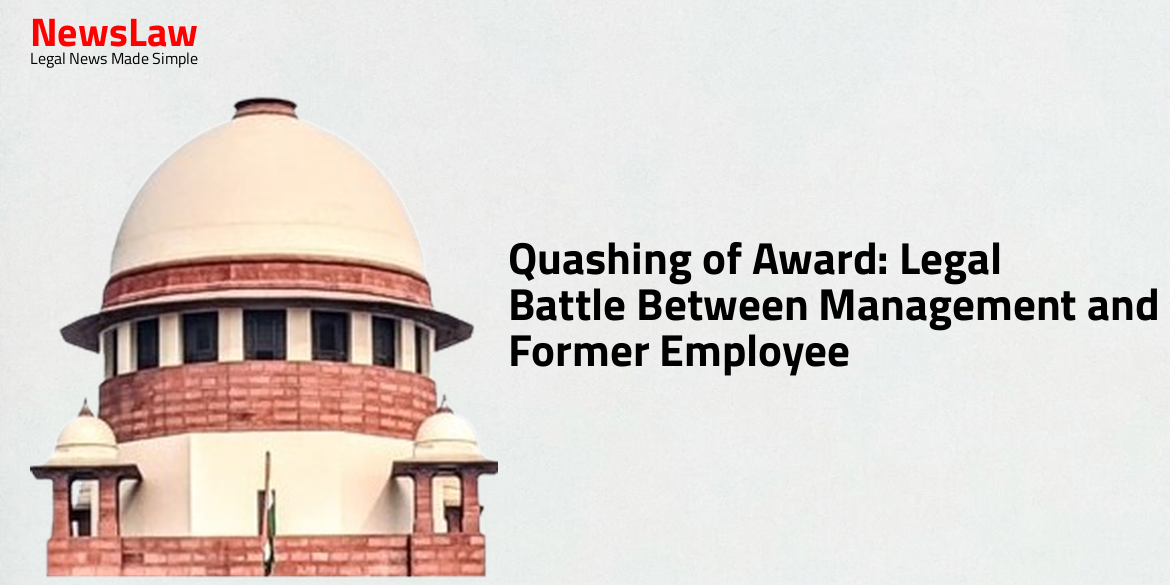In a significant ruling by the Supreme Court of India, the case revolves around the rectification of category-wise vacancies, ensuring compliance with reservation regulations. This judgment safeguards the principles outlined in the UP Reservation Act, 1994, and highlights the importance of maintaining fairness in selection procedures.
Facts
- The High Court found that there were errors in the calculation of category-wise vacancies for Technical Assistant – Group C positions in the Agriculture Department.
- The High Court relied on the precedent set by Union of India and Others v. O. Chakradhar (2002) 3 SCC 146, and decided to cancel the entire selection process due to its tainted nature.
- The High Court directed the State of U.P. to reissue a requisition to the Public Service Commission based on accurate data for conducting interviews afresh.
- The initial advertisement for 6628 vacancies had inaccuracies in the allocation of General/Unreserved and OBC category vacancies.
- The High Court ordered a reevaluation of vacancies based on the Uttar Pradesh Public Services Reservation Act, 1994, to rectify the wrongful appointments made.
- It was observed that diploma holders were mistakenly appointed in the OBC quota instead of the General quota and adjustments were needed to adhere to reservation rules.
- The High Court concluded that the entire selection process was flawed after the declaration of written examination results and the appointments were in violation of relevant laws.
- The State Government revised the vacancies for different categories to comply with reservation guidelines after the High Court’s directives.
- The selected candidates, who had already taken up their positions, appealed against the High Court’s decision.
- Several writ petitions were filed by unsuccessful candidates against the Department of Agriculture and successful candidates, challenging the validity of a 2014 Office Memorandum and the 2015 result.
- The High Court allowed the writ petitions, stating that the manipulation occurred under the guise of accommodating diploma holders in 1998.
- Petitioners requested the preparation of the result without considering the 2014 Office Memorandum.
- After a revised requisition on 15.09.2014, both appellants and private respondents were declared successful in the written examination.
- The UP Public Service Commission then issued an Office Memorandum in October 2014, allocating posts based on a government order from August 2014.
- Regularization of diploma holders had already been done in a way that adequately represented OBC category, hence the placing of all diploma holders into the open category was unnecessary.
- Changing the vacancies for different categories post the written exam result was considered a violation of Agriculture Service Rules, 1993, impacting the selection process unfairly.
- Final results were declared on 21.05.2015.
Also Read: High Court Acquittal Case of State of Uttar Pradesh v. Jai Prakash
Issue
- Whether the revised requisition dated 20.08.2014 and the office memorandum of UP Public Service Commission dated 12.10.2014 is only rectification of wrongful calculation of category-wise vacancies?
- Whether the revised Office Memorandum dated 12.10.2014 suffers from arbitrariness as contended by the respondents?
- Whether the office memorandum dated 12.10.2014 revising the breakup of vacancies would amount to change in the rules of the game during the process of selection?
- Having had full knowledge of revising the category-wise vacancies and having consciously participated in the interview, whether the unsuccessful candidates-private respondents-intervenors are estopped from challenging the selection of the successful candidates?
- When the regularization of diploma holders was not under challenge in the writ petitions filed in the year 2015, whether the High Court was right in going into the legality of the regularization of the diploma holders and recording an adverse finding regarding the absorption of the diploma holders against the General quota
Also Read: Judgment Review: Supreme Court’s Ruling on the Capital Punishment Appeal
Arguments
- Learned Senior counsel argued that changing the number of vacancies category-wise does not violate the rules of the selection process.
- The revised requisition was made to fulfill the constitutional mandate of reservation and the provisions of the UP Reservation Act, 1994.
- Private respondents who participated in the interview without protest cannot challenge the selection process after results.
- The High Court’s decision to set aside the selection process was based on the increase in the number of vacancies advertised for each category, which was deemed incorrect.
- The revised Office Memorandum of UP Public Service Commission dated 12.10.2014 was based on the revised requisition by the Department of Agriculture to rectify the wrong calculation of category-wise vacancies.
- The selection of appellants should not be set aside since there was no allegation of malice or arbitrariness in the selection process.
- The argument was made that the entire selection process cannot be nullified because of technical flaws in the revised requisition exceeding the permissible limits of reservation.
- The High Court’s decision to set aside the selection process after the written examination was disputed based on the absence of misconduct or fraud to vitiate the entire selection.
- The selection process was held to be in accordance with the provisions of the UP Reservation Act, 1994, and there were no allegations of malice or arbitrariness to invalidate it.
- The conduct of business by the UP Public Service Commission must strictly adhere to the provisions of the Uttar Pradesh State Public Service Commission (Regulation of Procedure and Conduct of Business) Act, 1974.
- The revised Office Memorandum dated 12.10.2014 altering the number of vacancies in different categories was deemed unsustainable by the High Court, leading to its set aside.
- The High Court rightfully directed the continuation of the selection process and instructed the State to send requisition to the UP Public Service Commission based on quantifiable data, cadre strength, and actual personnel distribution across categories.
- The counsel argued for the accommodation of 906 candidates out of the 2779 existing vacancies as of the present date.
Also Read: Synergy and Solution Incorporation v. Vipin Dhopte – Landmark Judgement by Supreme Court of India
Analysis
- The judgment discusses the revisions made in the requisition dated 20.08.2014 and the Office Memorandum dated 12.10.2014 by the UP Public Service Commission in compliance with the UP Reservation Act, 1994.
- It is emphasized that the State Government’s revision of vacancies was to rectify a wrongful calculation and ensure adherence to reservation regulations.
- A comparison is made with the Hansa Corporation case, where the Supreme Court’s judgment held that it is binding on all parties involved despite not being directly named in the case.
- The issue of whether the change in the number of vacancies in different categories constitutes a violation of rules during the ongoing selection process is addressed.
- The powers under Article 142 of the Constitution of India are highlighted, noting that they cannot be used to contravene statutory provisions of substantive law.
- The High Court’s observations regarding a decrease in vacancies affecting candidates from the General category are analyzed, and it is argued that the changes were made in accordance with the law and did not unfairly impact candidates.
- The case is deemed distinguishable from others where changes in selection process rules after commencement were considered impermissible; here, the revisions were corrective measures rather than altering the process mid-way.
- The Court examines the obligations under the UP Reservation Act, 1994 for reservation percentages and the proper determination of vacancies for various categories within the cadre.
- The summary also includes discussions on the corrective steps taken by the Agriculture Department and the implications of rectifying earlier mistakes in vacancy calculations.
- Various affidavits and official communications are referenced to support the findings related to vacancy adjustments and compliance with reservation provisions.
- Vacancies carried forward through special recruitment are to be filled separately from the vacancies of the year they are filled in.
- The ceiling of fifty per cent reservation of total vacancies in a year applies to each year’s vacancies separately.
- The competent authority is responsible for ensuring compliance with the UP Reservation Act, 1994.
- This authority may be invested with necessary powers to discharge their responsibilities effectively.
- Penal provisions exist for any appointing authority or officer who acts wilfully to contravene the Act.
- Reservation percentages for Scheduled Castes, Scheduled Tribes, and Other Backward Classes are specified in direct recruitment vacancies.
- Certain categories of Other Backward Classes are exempt from reservation.
- The total reservation for all categories should not exceed fifty per cent of total vacancies in any year of recruitment.
- If reserved vacancies remain unfilled in a year, they may be carried forward to special recruitment processes.
- It is important not to allow the State to alter eligibility criteria or selection methods once the recruitment process has begun to avoid manipulation.
- Successful candidates should be notified when their selection is challenged through a writ petition.
- Failing to include successful candidates in a writ petition may affect the maintainability of the case.
- The power under Article 142 of the Constitution must be used carefully and sparingly to ensure justice between parties.
- The ratio of a decision is binding, not the findings of facts.
- The law declared by the Supreme Court under Article 141 of the Constitution is binding on all courts in India.
- The principle that rules of the game cannot be changed mid-selection is set for reconsideration by a larger Bench.
- (v) Diploma holders were required to be absorbed only against the General quota, not altering the advertised number of posts in the General category.
- (vi) Filling up unfilled horizontal reservation by candidates from respective vertical reservation is in line with government policy.
- (vii) Challenge to a specific judgment does not amount to res judicata if other related judgments are not challenged.
- (viii) 906 candidates were not issued appointment orders to comply with reservation percentages; issuance of orders cannot be directed under Article 142 of the Constitution.
Decision
- Private respondents/intervenors and 906 candidates not issued appointment orders granted age relaxation as a one-time measure.
- Impugned judgment of the High Court dated 10.02.2017 set aside in WP(C) No.34196 of 2015 and batch of writ petitions.
- Age relaxation strictly a one-time measure.
- All intervenors/impleading applications stand dismissed.
Case Title: ANUPAL SINGH . Vs. THE STATE OF UTTAR PRADESH THROUGH PRINCIPAL SECRETARY PERSONNEL DEPARTMENT
Case Number: C.A. No.-004815-004815 / 2019



